 There’s a fair chunk of spectrum that’s sitting there not being used in the 2GHz band. The various bits are 2500-2690 MHz, 2010-2025 MHz and 2290-2300 MHz.
There’s a fair chunk of spectrum that’s sitting there not being used in the 2GHz band. The various bits are 2500-2690 MHz, 2010-2025 MHz and 2290-2300 MHz.
Ofcom has a duty to ensure spectrum isn’t wasted and as a consequence of the auction will end up driving revenue for the Government. Previously, and famously they did very well when they auctioned the 3G licenses, raising £21bn for the Treasury.
They recently auctioned some GSM spectrum and that only raised £3.8m, but it was much less than the 3G lot with many more restrictions.
Under its new face, and following EU directives, Ofcom likes to offer technology neutral licenses, which means the licensee can use the spectrum for whatever they want – as long as they meet the radio restrictions on that band (power, spectral masks, etc). They hope this will stimulate innovative services which is good for the economy.
There’s a lot of interest in the spectrum, as it could be used for lots of services including 3G and WiMAX, but that’s where the problems start.
Possible European Interference
There are various blocks of spectrum which are coordinated at a European level and each EU country uses the spectrum for the same things. That’s pretty much what happens for GSM and 3G, as well as some TV and radio bands.
It’s all organised by CEPT (European Conference of Postal and Telecommunications) and the Radio Spectrum Committee (RSC), CEPT is represented by 47 countries and the RSC by 25 EU states. They ensure that radio usage is coordinated. Unfortunately radio waves don’t abide by national borders, so it would be no good if one country was using spectrum for say TV and another for radio as they’d interfere with each other.

Though the UK is an island, interference issues are quite common, especially in the south east with France and the north east with the Dutch and even the Nordic countries. The west has to worry about Ireland (and of course Northern Ireland abides by UK policy).
These particular bands are already allocated for 3G, 10MHz in 2010 – 2020 MHz, is already designed for license-exempt self-provided, self-coordinated IMT-2000 use. In the UK none of the 3G networks have actually utilised it, though in other parts of Europe it has been used for this purpose.
2500 – 2690 MHz is currently mainly used for video broadcast systems, all licensees have been given notice to vacate by 31st December 2006. This is a significant amount of spectrum (190MHz) which is greater than is currently allocated to the whole of 3G use (140MHz). It was reserved for a “new” entrant if the current 5th 3G operator failed or for existing 3G expansion.
Ofcom’s suggestions summarised
Ofcom are currently holding UK consultations to see what stakeholders think should happen. They are proposing the following: –
2500-2690 MHz Packaged on the basis of blocks of 5 MHz as lots of paired spectrum (2×5 MHz, 120 MHz duplex spacing) and unpaired spectrum (5 MHz), with the eventual amount of lots in each category to be determined in the auction. The reference point is as per the CEPT band plan: 14 lots of paired channels (14x2x5 MHz with uplink in 2500-2570 MHz and downlink in 2620-2690 MHz) and 9 lots of unpaired channels (9×5 MHz in 2570-2615 MHz).
One guard channel will be necessary at adjacencies between paired and unpaired spectrum, at 2615-2620 MHz, and possibly another in the top part of the band.
There is a possibility to allow paired lots to be converted into the equivalent of two unpaired lots in the event that demand for unpaired lots exceeds that for paired lots at a given lot price.
Each bidder should receive contiguous lots in each category, except potentially one assignment of unpaired spectrum which could need to be split into two blocks of contiguous lots.
2010-2025 MHz Package for award as a single 15 MHz lot.
2290-2302 MHz Package for award as a single 10 MHz lot and retain 2300-2302 MHz for possible inclusion as part of a future award together with 2302-2310 MHz.
What might the response be?
The consultation will close in March 2007 and it’s likely the 3G operators will be extremely vocal in their claim to this spectrum, as they paid so much for their original licenses.
Once Ofcom digest the responses, they’ll then have to argue the case at the European level to ensure it can be licensed off in a technology neutral manner without upsetting our neighbours, however getting agreement from at least 47 countries tends to be a time consuming process.
Luckily CEPT are already discussing the issues and are expecting to make a statement in July next year. RSC will follow shortly after.
Although there’s no guarantee that discussions will go in Ofcom’s favour, they are hoping an award process can start in the Autumn of 2007, though it may well be delayed until 2008.
Potential Cash
With 16 national licenses available, there’s a fair amount of cash the government can expect to raise. Even if Ofcom set the minimum price at £50,000 then that’s £800,000 – they are likely to reach much higher values, although not the silly pricing that the original 3G licenses fetched.
Ofcom
CEPT (European Conference of Postal and Telecommunications)
Radio Spectrum Committee (RSC)
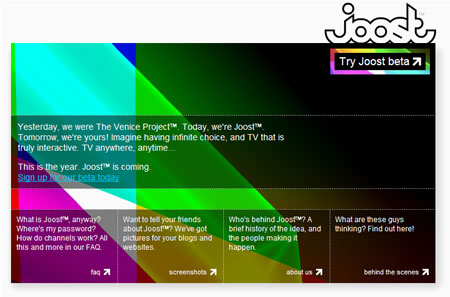
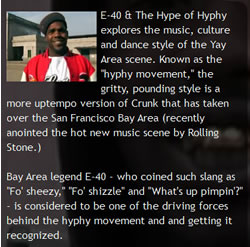 We whacked it on an older (1.5GHz) machine and found that it really didn’t have the horsepower to run it properly. It’s a pretty greedy little number, even running out of steam on a 2.5GHz. The buzz around us beta testers is that currently, it _loves_ taking power/resources.
We whacked it on an older (1.5GHz) machine and found that it really didn’t have the horsepower to run it properly. It’s a pretty greedy little number, even running out of steam on a 2.5GHz. The buzz around us beta testers is that currently, it _loves_ taking power/resources.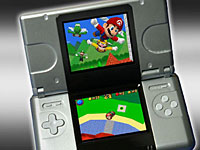 The Nintendo DS has emerged as the top selling gaming device in both the US and the UK during 2006.
The Nintendo DS has emerged as the top selling gaming device in both the US and the UK during 2006.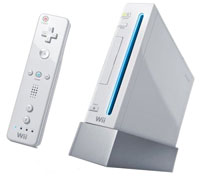 Americans certainly went waheey for the Wii, with 604,200 consoles shifted in December, backed up by brisk business for extra games.
Americans certainly went waheey for the Wii, with 604,200 consoles shifted in December, backed up by brisk business for extra games.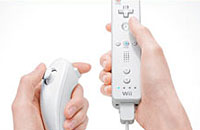 Despite the bumper sales, Wii’s still remain as rare as a Cardiff City away win, with Nintendo Europe MD Laurent Fischer admitting that the company is still “facing stock shortages.”
Despite the bumper sales, Wii’s still remain as rare as a Cardiff City away win, with Nintendo Europe MD Laurent Fischer admitting that the company is still “facing stock shortages.” The deal serves up the usual “up to” 8Mbps connection, and comes with a free bundled wireless Sky router and a fairly generous 40GB monthly usage allowance, which should be enough to keep most multimedia fans happily gorging on new content.
The deal serves up the usual “up to” 8Mbps connection, and comes with a free bundled wireless Sky router and a fairly generous 40GB monthly usage allowance, which should be enough to keep most multimedia fans happily gorging on new content.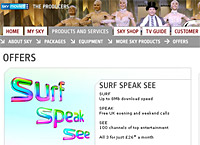 Before you get too excited and start flicking your cash in the direction of that lovely Mr Murdoch, bear in mind that the service is only available to customers close to exchanges already unbundled by Sky.
Before you get too excited and start flicking your cash in the direction of that lovely Mr Murdoch, bear in mind that the service is only available to customers close to exchanges already unbundled by Sky. It may only be a few days after the New Year, but the party poppers and drinks cabinet have been rolled out at Chez BT as the company is poised to rack up its 10 millionth broadband connection this week.
It may only be a few days after the New Year, but the party poppers and drinks cabinet have been rolled out at Chez BT as the company is poised to rack up its 10 millionth broadband connection this week.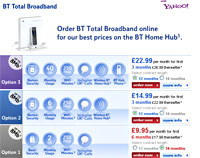 The remaining 1.3 million lines are supplied to big names like Carphone Warehouse and BSkyB via BT Openreach.
The remaining 1.3 million lines are supplied to big names like Carphone Warehouse and BSkyB via BT Openreach.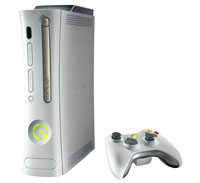 It truly was a battle of the consoles this Christmas, with big-hitters Microsoft, Nintendo and Sony all looking to set the Yuletide cash tills ringing.
It truly was a battle of the consoles this Christmas, with big-hitters Microsoft, Nintendo and Sony all looking to set the Yuletide cash tills ringing.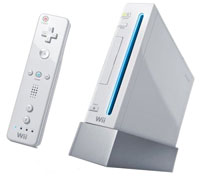
 It was a similar situation in the UK, with Nintendo Wii’s near-impossible to find in the shops (yes, we were looking too and someone’s still waiting for their Christmas present!).
It was a similar situation in the UK, with Nintendo Wii’s near-impossible to find in the shops (yes, we were looking too and someone’s still waiting for their Christmas present!). There’s a fair chunk of spectrum that’s sitting there not being used in the 2GHz band. The various bits are 2500-2690 MHz, 2010-2025 MHz and 2290-2300 MHz.
There’s a fair chunk of spectrum that’s sitting there not being used in the 2GHz band. The various bits are 2500-2690 MHz, 2010-2025 MHz and 2290-2300 MHz.
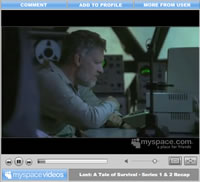 Wow … things are really starting to gel across the Murdoch media businesses, as James Murdoch starts showing his hand. Perhaps this is the first real example of seeing James’ talent on with what we’ve been told was his passion – that for convergence.
Wow … things are really starting to gel across the Murdoch media businesses, as James Murdoch starts showing his hand. Perhaps this is the first real example of seeing James’ talent on with what we’ve been told was his passion – that for convergence. A number of Sky One shows will be available over the service. Sounds great, until you imagine that 93% of the those using Sky By Broadband already own a Sky+ box – having the ability to see the shows when they want to anyway.
A number of Sky One shows will be available over the service. Sounds great, until you imagine that 93% of the those using Sky By Broadband already own a Sky+ box – having the ability to see the shows when they want to anyway.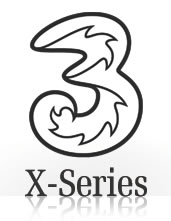 3 has seriously stepped up the offerings for providing services to mobile handsets. Their new service, X-Series, offers viewing of your own TV using
3 has seriously stepped up the offerings for providing services to mobile handsets. Their new service, X-Series, offers viewing of your own TV using 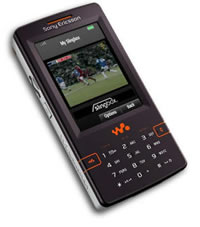 Comment
Comment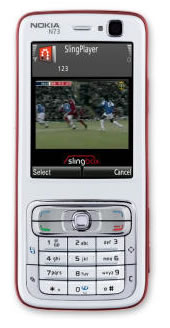 There will be repercussions – not least from the TV companies who really don’t like the idea that people can watch their TV when they’re on the move. To be precise it’s the fact that they don’t make any money out of it, is the bit they don’t like.
There will be repercussions – not least from the TV companies who really don’t like the idea that people can watch their TV when they’re on the move. To be precise it’s the fact that they don’t make any money out of it, is the bit they don’t like. A new YouGov survey has found that “free” broadband deals have resulted in lower customer satisfaction levels.
A new YouGov survey has found that “free” broadband deals have resulted in lower customer satisfaction levels. The service was the subject of a
The service was the subject of a 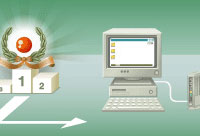 “It’s disappointing to see that the majority of providers are failing to accompany the growth in customer numbers by sufficient growth in customer service operations and the required investment in their technology to ensure that they are looking after customer needs in an acceptable manner,” said Steve Weller, communications chief services at uSwitch.
“It’s disappointing to see that the majority of providers are failing to accompany the growth in customer numbers by sufficient growth in customer service operations and the required investment in their technology to ensure that they are looking after customer needs in an acceptable manner,” said Steve Weller, communications chief services at uSwitch. Recently while travelling on an SAS flight, I had the pleasure of trying out the Connexion by Boeing service, which is an Internet service offered on long haul services.
Recently while travelling on an SAS flight, I had the pleasure of trying out the Connexion by Boeing service, which is an Internet service offered on long haul services.